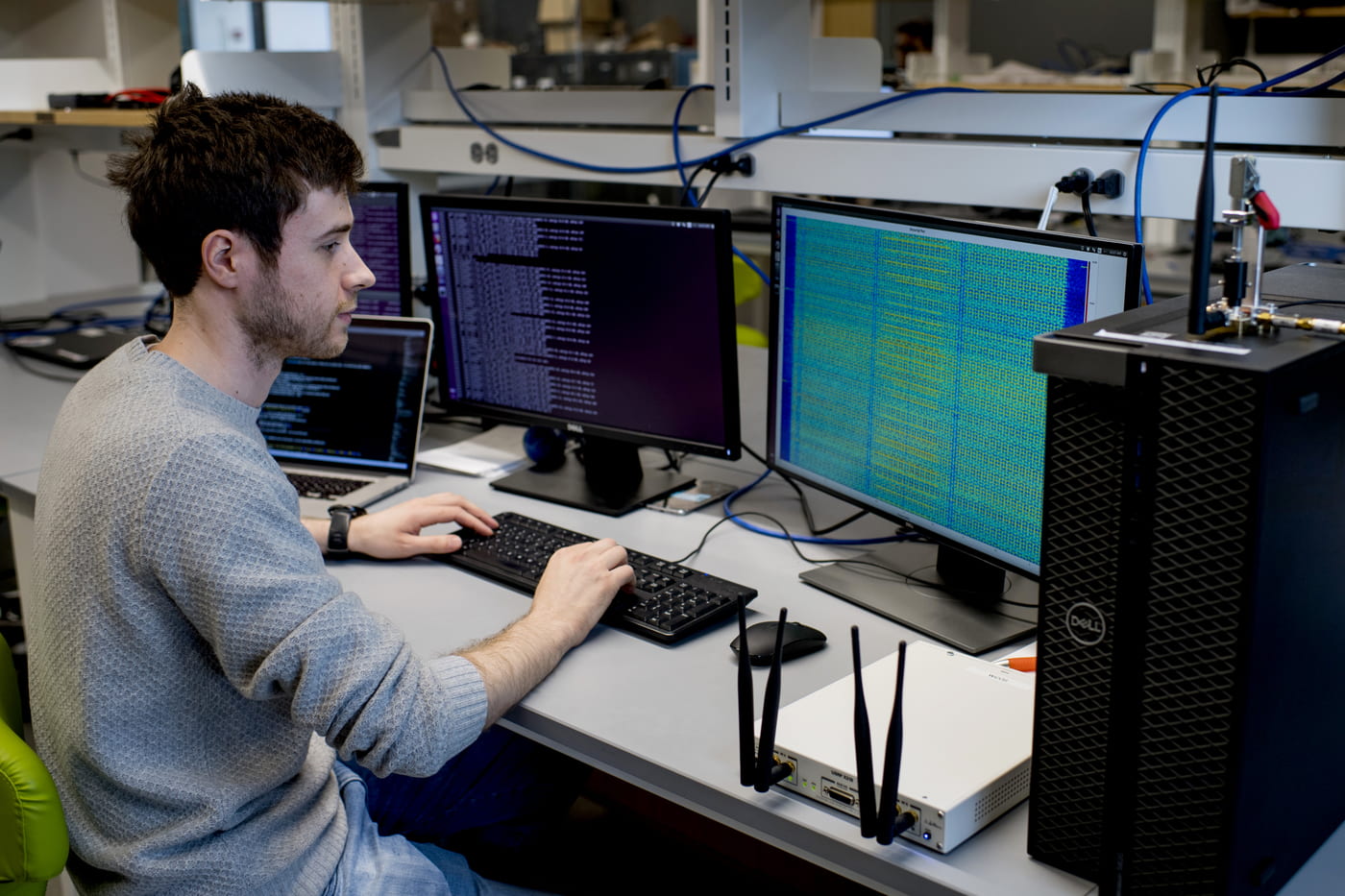Policies
Policies and Service Level Objectives (SLOs)
The Discovery cluster is a shared resource; the following policies have been created to increase efficiency for the Northeastern research community. Failure to follow Discovery policies could result in your account being revoked and/or disciplinary action by the university. If you have any questions or concerns about these policies, please contact the Research Computing team.
Policies and Service Level Agreements (SLAs)
The Discovery cluster is a shared resource. The RC team and the Research Computing Advisory Committee have developed the following policies to ensure that this resource is used in an efficient manner so that the entire Northeastern research community will benefit from this resource. If you have a Discovery account, you are expected to abide by these policies. Failure to follow these policies could result in the revocation of your access and/or disciplinary action by the university. If you have any questions or concerns about these policies, please contact us.
General
- Do not run jobs on the login nodes. If you run a job on a login node, it will be terminated.
- Do not use Discovery for any purpose other than for Northeastern University sponsored research.
- Review and comply with Northeastern’s Policy on Appropriate Use of Computer and Network Resources

General
- Do not run jobs on the login nodes. If you run a job on a login node, it will be terminated.
- Do not use Discovery for any purpose other than for Northeastern University sponsored research.
- Review and comply with Northeastern’s Policy on Appropriate Use of Computer and Network Resources

Access
- While Discovery is available to anyone affiliated with Northeastern University, students must have a faculty sponsor.
- Every person who uses Discovery must have his or her own account. Get started by visiting our documentation.
- You must never share your login ID or password with any other person, whether they are affiliated with the university or not.
- Three general partitions (long, large, and multigpu) have additional access guidelines. See the Partitions page on our documentation site.
Access
- Every person who uses Discovery must have his or her own account. Request access through Service Now.
- You must never share your login ID or password with any other person, whether they are affiliated with the university or not.
- Three general partitions (long, large, and multigpu) have additional access guidelines. See the Partitions page on our documentation site.
Scratch Space
The /scratch space is a shared space. Make sure you are familiar with the following guidelines.
- Do not store files on /scratch.
- Be aware that /scratch is not backed up. Always make sure to have a copy of any file you put on /scratch.
- Files are regularly checked for how long they have been on /scratch. All data thirty days old or older will be purged.
- If your /scratch account has consumed a total of 10,000,000 or more inodes, you will not be able to run any jobs until you reduce the amount of data on /scratch.
- If you attempt to avoid your files being purged by modifying file times, such as through touch, your account will be suspended and possibly revoked pending a review by the RC team and the Research Computing Advisory Committee.

Scratch Space
The /scratch space is a shared space. Make sure you are familiar with the following guidelines. (Revised August 2020)
- Do not store files on /scratch.
- Be aware that /scratch is not backed up. Always make sure to have a copy of any file you put on /scratch.
- Files are regularly checked for how long they have been on /scratch. All data thirty days old or older will be purged.
- If your /scratch account has consumed a total of 10,000,000 or more inodes, you will not be able to run any jobs until you reduce the amount of data on /scratch.
- If you attempt to avoid your files being purged by modifying file times, such as through touch, your account will be suspended and possibly revoked pending a review by the RC team and the Research Computing Advisory Committee.
NOTE: Research groups can request additional persistent storage for their group. A group can request up to 35TB of total data storage across all types of data storage available through RC, including active and archive. Note that this total is per group, not per individual in the group, so all individuals in the group would share the total amount of storage. A PI can initiate a storage space request using a New Storage Space request ticket. Please see our documentation for a description of our active storage tiers connected to Discovery and additional general data storage tiers not connected to Discovery.

Maintenance
The RC team performs routine maintenance to ensure that Discovery is kept up to date.
- Routine maintenance will be performed on the first Tuesday of the month.
- During the maintenance window, you will not be able to run jobs on Discovery. This includes private partitions on Discovery.
- All routine cluster maintenance, emergency maintenance, and annual shutdown maintenance information will be posted to the IT Statuspage. Please subscribe to ensure you receive updates on the status of all ITS systems.
- Additional maintenance details and reminders will be sent via email to all Discovery users.
Maintenance
The RC team performs routine maintenance on Discovery to ensure that it is kept up to date.
- Maintenance will be the first Wednesday of the month.
- During the maintenance window, you will not be able to run jobs on Discovery. This includes private partitions on Discovery.
- We send out reminders and updates about maintenance through the Discovery mail list. We also post updates to the ITS Systems Status page.
Acknowledgements
If you have used the Discovery cluster and/or received assistance from a member of the research computing team, we ask that you include an acknowledgement statement in any publication that details your research, such as journal articles, conference proceedings, dissertations, etc. See the homepage for a list of selected publications that acknowledge Discovery.
Example Acknowledgement Statements:
“This work was completed in part using the Discovery cluster, supported by Northeastern University’s Research Computing team.”
“The authors thank the Northeastern University Research Computing team for their [specify type of support/assistance] that contributed to this paper’s findings.”
“The authors thank [specify staff member’s name and title] of the Northeastern University Research Computing team for [specify type of support/assistance] that contributed to this paper’s findings.”

Acknowledgements
If you have used the Discovery cluster and/or received assistance from a member of the research computing team, we ask that you include an acknowledgement statement in any publication that details your research, such as journal articles, conference proceedings, dissertations, etc. The following are examples for adding an acknowledgement. Please modify as appropriate. See the homepage for a list of selected publications that acknowledge Discovery.
Example Acknowledgement Statements:
“This work was completed in part using the Discovery cluster, supported by Northeastern University’s Research Computing team.”
“The authors thank the Northeastern University Research Computing team for their [specify type of support/assistance] that contributed to this paper’s findings.”
“The authors thank [specify staff member’s name and title] of the Northeastern University Research Computing team for [specify type of support/assistance] that contributed to this paper’s findings.”

Service Level Objectives
Service Level Objectives (SLOs) provide information on RC services available through our ServiceNow catalog. All SLOs will be reviewed periodically by the RC team and updated as needed. While RC strives to complete service requests in the timeframe outlined in the SLO, these times are a guide and not guaranteed.
- Access Request SLO
- Assistance SLO
- Documentation Request SLO
- Software Installation Request SLO
- Storage Extension SLO
- Unsubscribe from Discovery Listserv SLO
Service Level Agreements
Service Level Agreements (SLAs) detail the services we provide to the research community through our ServiceNow catalog. All RC catalog items have a corresponding SLA that you can view below.
Let’s Work Together
Enabling you to advance your research is our mission. Reach out to us with questions, issues, and concerns so we can provide you with the assistance you need.
